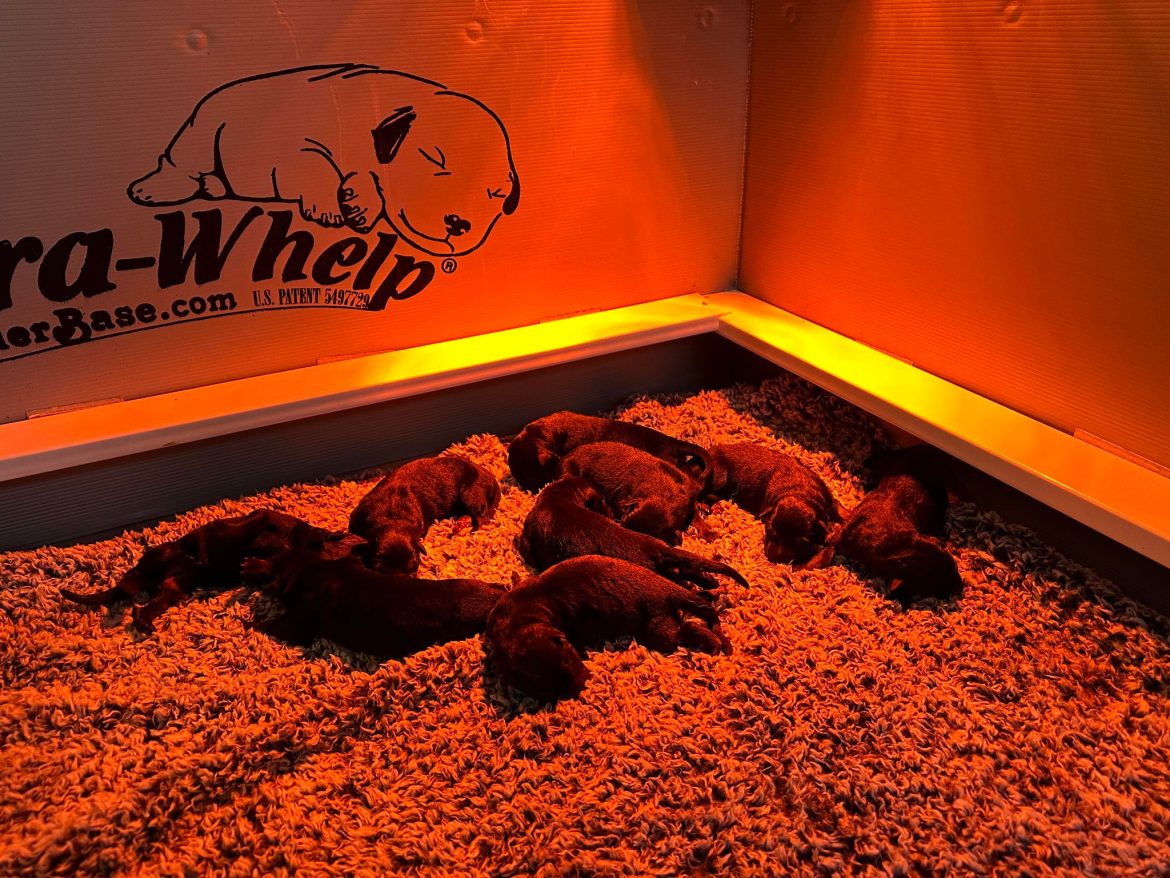Avoiding That Nervy German Shepherd Puppy For Sale
Can you imagine waiting for months to find that perfect German Shepherd puppy. You finally find what you believe will be the perfect puppy. You get the puppy home. And the puppy turns out to be a pile of nerves. It pees every time you pick it up. I don’t mean for the first couple of days. That can happen to the best of dogs. But this goes on for months. You turn the music up and your puppy acts like it just saw something from a horror film. It about jumps out of its skin. Your neighbor’s kids come over and your puppy all of a sudden looks like a werewolf with bones ready to snap out of place as it looks ready to stand on its hind legs. Fangs bared and long streams of saliva rolling off its tongue. But didn’t dad win the Westminster show. Mom and dad’s pedigree is stacked with AKC champions. None of this makes any sense! Ok, maybe a little hyperbole here. But you get the picture. So how do we make sense of puppies from seemingly great breeders turning out so awful? As you enter that exciting phase of looking for that perfect German Shepherd puppy for sale, we at Czech Working Line hope this article will help you make sense of how to better understanding what causes nervy GSDs and how to spot them.
What Is a Nervy GSD Puppy?
The word “nervy” gets thrown around a lot. But what does this mean? In short, a nervy dog is anxious, a “bundle of nerves,” hence the term “nervy” and responds unpredictably in unpredictable situations (Walker & Daniels, 2018). These dogs are on edge ALL the time— ok, a bit of an exaggeration. But you get the point! They’re the kind of dogs that seem to bark excessively. They cower in fear at what feels like nothing. They make you nervous that they just might bite out of nervousness! There is virtually no situation where this will be good news. Really, in what situation are you going to want a jittery German Shepherd puppy that doesn’t handle stress well. Let’s be real— that’s not the kind of behavior you want in a dog that’s supposed to be your protector or trustworthy sidekick while on patrol (Carson, 2021). Avoiding nervy puppies, that and structure (still can’t get over the disfigured look of the exaggerated roach back that has become nearly upiquitous is most modern, show line GSDs), is a primary reason why we here at Czech Working Line exclusively build on titled, working line German Shepherd pedigrees. You can search back through pedigrees and find nearly every dog going back many generations has been titled. Many pedigrees have a majority of dogs not only IGP1 titled, but IGP2 and IGP3 titled. Testing against an objective standard over and over is a great way to introduce and improve a stable gene pool in a given breeding program. We get all kinds of questions on our dogs. Whether you are looking for a German Shepherd puppy for sale to stand by you as a home protection dog or a flat out high drive, grinding machine to tear up the highest level of Schutzhund, we’ve got some of the top litters of working line GSDs here in the USA
Nervy Puppies: The thing of Nightmares
Nervy puppies might seem cute at first. But as they grow, their flaws can become some dog version of Saw. Rather than loving life and enjoying new experiences, the nervy dog is just as likely to freak in new situations. This can make training next to impossible. Lacking strong nerves, they tend to be so focused on their fears, it can be hard for them to calm down long enough to submit to the training process. Imagine trying to get your dog to sit, but every time a train passes, your puppy nearly jumps out of their skin. That’s a nervy dog for you (Jones, 2019)!
Nervy dogs can be headache and then some. When they’re scared, they often snap or bite as a way to protect themselves. Do you have kids? Do your neighbors have kids? The last thing you will want is an unpredictable dog prone to lash out without warning. What a nightmare if your puppy bit your one of your kids or the neighbors. Doesn’t matter who you are or what your context, there is about no sense where this kind of dog makes sense.
Responsive (Biddable) GSDs, the Opposite of Nervy Dogs
Don’t confuse a high drive with a nervy constitution. High drive German Shepherds have lots of energy and are super motivated, but they’re still able to focus and respond well to training (Miller, 2020). These dogs are eager to please and can channel their energy into productive activities, like obedience training, protection work, or even dog sports. They’ve got the “let’s do this!” attitude but aren’t over-the-top anxious or fearful.
A high drive, trainable German Shepherd is actually a joy to work with because they’re so responsive. They’ll work hard for a reward, and they’re not easily scared or distracted by the world around them. On the flip side, a nervy dog might be high drive but lacks that stability and confidence. It’s like comparing a well-trained athlete to someone who’s always nervous and jumpy—you definitely want the athlete on your team (Evans & Thompson, 2018).
The Role of Genetics and Socialization
The sad truth is most nervy dogs can be avoided through better breeding practices. Breeding for color is an easy way to produce nervy dogs; the same is true for many show lines (Smith & Lee, 2019). Too many dogs are bred without adequate attention to conformation, temperament and nerves. Choosing for color often ends up breeding dogs with poor conformation or lousy nerves. A very similar argument can be made for many show dogs. Bred to look pretty while circling the show ring, many show dogs lack the constitution for tracking and protection work.
But genetics aren’t the whole story. How a puppy has been raised also matters. Early socialization is key to developing confident puppies. Here at Czech Working Line, we start with Early Neurological Stimulation (ENS). A ton of great science shows proper socialization and varied stimiulation goes a long way towards devleoping puppies with a strong constiution. So, if a breeder isn’t taking the time to socialize their litters, that should be a massive red flag (Johnson, 2019). On a mission to bring greater happiness to our customer’s lives, we believe well-bred German Shepherd puppy can add value to life.
Why a Schutzhund Title Matters in Finding a German Shepherd Puppy for Sale
We would argue one of the best ways to avoid nervy puppies when looking for a German Shepherd puppy for sale is to start with Schutzhund-titled pedigrees. Schutzhund (now called IGP) is tests a dog’s tracking, obedience, and protection skills. A prerequisite to IGP is first passing a temperament test. Only dogs with solid temperaments can move forward with Schutzhund training. Find a pedigree stacked with IGP titled dogs and you are on a roll to finding something great (Anderson, 2020)! We at Czech Working Line exclusively breed dogs with titled pedigrees.
Schutzhund testing is tough—it puts dogs through their paces and proves they have the chops to thrive in tracking and protection work. A dog that earns a Schutzhund title has proved a capacity to stay calm and focused. Research has shown Schutzhund-titled parents are way more likely to have the confident, biddable temperament than would be found in most other lines of dogs (Peterson & Brown, 2018).
How to Spot Nervy Traits in a Puppy
In your search for a German Shepherd puppy for sale, there are some signs to watch for that might indicate a nervy puppy. If you see a puppy trembling, is super cautious around new people and objects, arguably, this is not a great sign. Great puppies should be curious and eager to explore their environment. A little hesitation is normal. But they should quickly overcome the newness and start investigating their surroundings (White, 2017).
As the breeder about any temperament tests they’ve done on the puppies. Good breeders will test their puppies to see how they respond to stress and new situations. They should be able to tell you which puppies are more confident and fearless. See for yourself. Watch to see which puppies get out and explore. Look which puppies show themselves as bold and little explorers. That’s the one to choose.
Choose Confidence Over Nerves
At the end of the day, you want a confident German Shepherd. Nervy puppies grow up into nervy adults. And nervy adults are a recipe for stress, frustration, and even danger. By choosing a Schutzhund-titled pedigree and a sound temperament with strong nerves you can start out right with the best possible choice. Here at Czech Working Line, we believe live is better with a great German Shepherd by your side. Reach out with questions. We’d be happy to help.
References
- Anderson, J. (2020). “The Importance of Schutzhund Titles in German Shepherds.” Working Dog Journal, 15(4), 23-39.
- Carson, M. (2021). “Temperament Testing in German Shepherd Puppies.” Journal of Canine Behavior, 11(2), 102-115.
- Evans, R., & Thompson, D. (2018). “Understanding Drive vs. Nervousness in Working Dogs.” Canine Performance Quarterly, 9(1), 30-45.
- Johnson, L. (2019). “The Role of Socialization in Puppy Development.” Veterinary Behavior Journal, 14(3), 76-92.
- Jones, P. (2019). “Avoiding Nervy Traits in German Shepherds.” Dog Training Today, 7(3), 58-70.
- Miller, T. (2020). “High Drive German Shepherds: A Trainer’s Perspective.” Canine Training Insights, 12(2), 45-60.
- Peterson, A., & Brown, L. (2018). “Evaluating Schutzhund Pedigrees for Temperament.” International Dog Training Journal, 10(4), 88-105.
- Smith, K., & Lee, S. (2019). “The Genetics of Nervousness in Working Line German Shepherds.” Journal of Canine Genetics, 13(2), 34-51.
- Walker, E., & Daniels, B. (2018). “How to Identify and Avoid Nervy Puppies.” Puppy Development Review, 8(2), 60-72.




